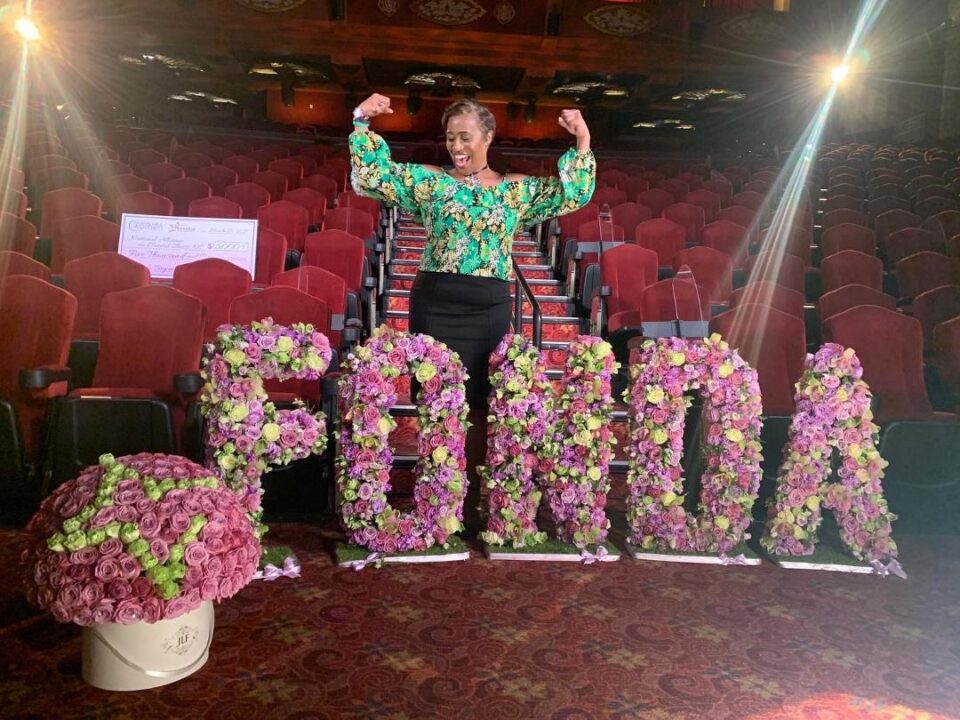By Ashleigh Fields
The Charlotte Post
For 29 years, Fonda Bryant has been building relationships, nurturing community and promoting mental health awareness.
A suicide survivor, the cause is personal, and carries a heavy implication on her life’s calling.
“I was at the lowest point in my life. I felt no one cared, no one understood what I was going through,” Bryant said. “I was all alone, but I wasn’t alone. I had a hero that I didn’t know existed [her aunt]. She recognized the warning signs of suicide and saved my life on Feb. 14, 1995.”
The story all but ends there. Police were called, Bryant was handcuffed and sent to a mental health facility – a criminalizing experience that often hurts individuals instead of helping them.
“People don’t look at mental health as a physical condition,” she said. “Mental health has a strong stigma. In the Black culture it’s like a vice, a grip, and the stigma is causing people to die.”
Mental health advocacy motivates Bryant’s work to spark change. She feels educating people about illness, treatment and risks can help.
“I had no idea I was dealing with depression,” she said. “I had no example growing up. My mom deals with and dealt with depression but she didn’t treat it. Being a Black female and knowing the history of mental health within our culture is important. I felt obligated to turn around and help other people.”
According to the Centers for Disease Control and Prevention, about 50,000 Americans died by suicide in 2022. As a result, on weekends you’ll find Bryant hosting free virtual suicide prevention training sessions that teach three simple initiatives; question, persuade and refer, or QPR. Those steps help people support a loved one that may be struggling with suicidal thoughts.
The sessions point to warning signs of a crisis and teaches participants to remain calm and safe when impacted. Bryant has hosted sessions for two years in conjunction with colleges and community organizations. The next session on March 16 from 12-2 p.m.
Bryant has expanded her advocacy to lobbying for legislative policies such as making every parking deck in North Carolina display suicide prevention signage.
“Over half of the country’s parking facilities have had suicide attempts and many are on college campuses,” Bryant said. “NC State [University] has reported 14 deaths by suicide, so has UNC Charlotte and other parking decks uptown.”
Bryant has successfully posted signage in 12 Charlotte parking decks in addition to working with state Sen. Joyce Waddell, County Manager Dena Diorio and Rep. Carla Cunningham to promote a bill in the General Assembly.
The legislation, HB 858, would establish a $500,000 grant progrfam for owners or operators of parking garages taller than 30 feet to apply for suicide prevention signage.
The language differs from Massachusetts’ Bill S70, created in Bryant’s honor. It mandates every parking proprietor to post “You Are not Alone” suicide prevention signs and fines those who don’t $50 per day.
“It’s an uphill battle to get people to see that those signs are saving lives,” Bryant said of the North Carolina bill. “We are a very reactive society; we wait until something happens to do something about it.”
Bryant is not only proactive about mental health in public, she does the same with family.
“She has helped me maintain healthy mental health through education and awareness,” her son Wesley said. “I’m much more aware of triggers and symptoms of mental health conditions that allows me to be able to be cognizant, and also help others where I can.”
That includes college campuses. Bryant recently met with students at North Carolina A&T State University in Greensboro on Feb. 26 for a campuswide event even singing her praises.
“She was just going to speak to athletes, but eventually I thought she should share with the whole campus,” said Robin Campbell, a well-being counselor for A&T athletes. “Students need to connect with someone who can understand what they might be experiencing.”
That’s Bryant’s goal: Impacting communities near and far.
“Mental healthcare was invented for the rich, not Black people, not poor people,” she said. “Black people self-medicate. “When you look at our history of self-medicating and not having the money it’s still continuing. When I share my story, let people know she’s not ashamed. It puts a face on a disease.
“I’m going to keep running this race and passing on the baton to others to help someone else.”

